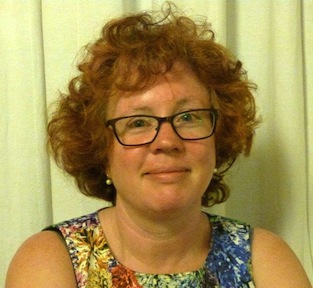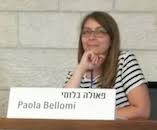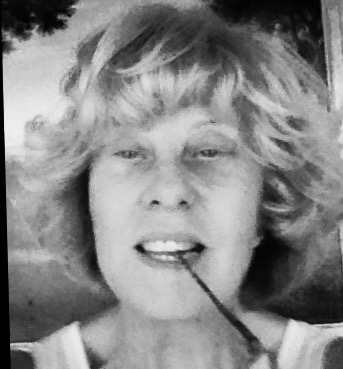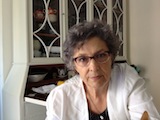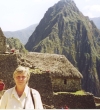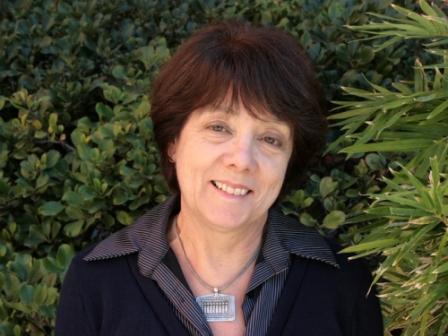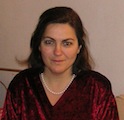Studying at the University of Verona
Here you can find information on the organisational aspects of the Programme, lecture timetables, learning activities and useful contact details for your time at the University, from enrolment to graduation.
Academic calendar
The academic calendar shows the deadlines and scheduled events that are relevant to students, teaching and technical-administrative staff of the University. Public holidays and University closures are also indicated. The academic year normally begins on 1 October each year and ends on 30 September of the following year.
Course calendar
The Academic Calendar sets out the degree programme lecture and exam timetables, as well as the relevant university closure dates..
| Period | From | To |
|---|---|---|
| I semestre | Oct 1, 2009 | Jan 16, 2010 |
| II semestre | Feb 22, 2010 | May 31, 2010 |
| Session | From | To |
|---|---|---|
| sessione esami invernale | Jan 18, 2010 | Feb 20, 2010 |
| sessione esami estiva | Jun 1, 2010 | Jul 10, 2010 |
| sessione esami autunnale | Sep 1, 2010 | Sep 29, 2010 |
| Session | From | To |
|---|---|---|
| Sessione lauree autunnale | Nov 26, 2009 | Nov 28, 2009 |
| Sessione lauree invernale | Apr 7, 2010 | Apr 10, 2010 |
| Sessione lauree estiva | Jul 12, 2010 | Jul 16, 2010 |
| Period | From | To |
|---|---|---|
| Festa di Ognissanti | Nov 1, 2009 | Nov 1, 2009 |
| Festa dell'Immacolata Concezione | Dec 8, 2009 | Dec 8, 2009 |
| Vacanze di Natale | Dec 23, 2009 | Jan 6, 2010 |
| Vacanze di Pasqua | Mar 29, 2010 | Apr 6, 2010 |
| Festa della Liberazione | Apr 25, 2010 | Apr 25, 2010 |
| Festa del Lavoro | May 1, 2010 | May 1, 2010 |
| Festa del Santo Patrono di Verona S. Zeno | May 21, 2010 | May 21, 2010 |
| Festa della Repubblica | Jun 2, 2010 | Jun 2, 2010 |
Exam calendar
Exam dates and rounds are managed by the relevant Foreign Languages and Literatures Teaching and Student Services Unit.
To view all the exam sessions available, please use the Exam dashboard on ESSE3.
If you forgot your login details or have problems logging in, please contact the relevant IT HelpDesk, or check the login details recovery web page.
Should you have any doubts or questions, please check the Enrollment FAQs
Academic staff
 valentina.adami@univr.it
valentina.adami@univr.it
Alberti Alberto
 a.alberti@unibo.it
a.alberti@unibo.it
Ambrosi Paola
 paola.ambrosi@univr.it
paola.ambrosi@univr.it
 +39 045 802 8466
+39 045 802 8466
 anna.belladelli@univr.it
anna.belladelli@univr.it
 paola.bellomi@univr.it
paola.bellomi@univr.it

Bettoni Camilla
 camilla.bettoni@univr.it
camilla.bettoni@univr.it
 +39 045 802 8199
+39 045 802 8199
 daniela.carpi@univr.it
daniela.carpi@univr.it
 monica.cristini@univr.it
monica.cristini@univr.it
 cinzia.delotto@univr.it
cinzia.delotto@univr.it
Forza Francesca
 francescaforza@gmail.com
francescaforza@gmail.com
 cecilia.grana@univr.it
cecilia.grana@univr.it

Ligas Pierluigi
 pierluigi.ligas@univr.it
pierluigi.ligas@univr.it
 +39 045 802 8408
+39 045 802 8408

Locher Elmar
 elmar.locher@univr.it
elmar.locher@univr.it
 +39 045802 8311
+39 045802 8311
Longhi Silvia
 silvia.longhi@univr.it
silvia.longhi@univr.it
 +39 045802 8329
+39 045802 8329
 silvia.monti@univr.it
silvia.monti@univr.it
 carmen.navarro@univr.it
carmen.navarro@univr.it
Nuzzo Elena
 elena.nuzzo@univr.it
elena.nuzzo@univr.it
 +39 045 802 8199
+39 045 802 8199
Piva Marika
Ruvoletto Luisa
 luisa.ruvoletto@univr.it
luisa.ruvoletto@univr.it
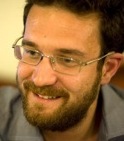
Tosco Pietro
 pietro.tosco@univr.it
pietro.tosco@univr.it
 francesco.vecchiato@univr.it
francesco.vecchiato@univr.it
Villani Simone
 simonevillani@tiscali.it
simonevillani@tiscali.it
Study Plan
The Study Plan includes all modules, teaching and learning activities that each student will need to undertake during their time at the University.
Please select your Study Plan based on your enrollment year.
1° Year
| Modules | Credits | TAF | SSD |
|---|
Prima letteratura straniera anno ISeconda letteratura straniera anno IPrima lingua straniera anno ISeconda lingua straniera anno I2° Year activated in the A.Y. 2010/2011
| Modules | Credits | TAF | SSD |
|---|
Seconda letteratura straniera anno IIPrima letteratura straniera anno IIPrima lingua straniera anno IISeconda lingua straniera anno IIUn insegnamento a scelta tra i seguenti3° Year activated in the A.Y. 2011/2012
| Modules | Credits | TAF | SSD |
|---|
Prima letteratura straniera anno IIISeconda letteratura straniera anno IIIPrima lingua straniera anno IIISeconda lingua straniera anno IIIUn insegnamento a scelta tra i seguenti| Modules | Credits | TAF | SSD |
|---|
Prima letteratura straniera anno ISeconda letteratura straniera anno IPrima lingua straniera anno ISeconda lingua straniera anno I| Modules | Credits | TAF | SSD |
|---|
Seconda letteratura straniera anno IIPrima letteratura straniera anno IIPrima lingua straniera anno IISeconda lingua straniera anno IIUn insegnamento a scelta tra i seguenti| Modules | Credits | TAF | SSD |
|---|
Prima letteratura straniera anno IIISeconda letteratura straniera anno IIIPrima lingua straniera anno IIISeconda lingua straniera anno IIIUn insegnamento a scelta tra i seguentiLegend | Type of training activity (TTA)
TAF (Type of Educational Activity) All courses and activities are classified into different types of educational activities, indicated by a letter.
History of Theatre and Performing Arts (2010/2011)
Teaching code
4S02252
Teacher
Coordinator
Credits
6
Language
Italian
Scientific Disciplinary Sector (SSD)
L-ART/05 - PERFORMING ARTS
Period
I semestre dal Oct 4, 2010 al Jan 15, 2011.
Learning outcomes
The aim of the course is to make students gain knowledge of the general aspects of Theatre History and also the ability of recognizing theoretical, dramaturgical and performing criteria which are the common basis for the historical theatre ex-periences. The course will also provide students the capacity of analyizing some specific fields of investigation in an organized and contextualized way.
Program
The Course will focus on one of the most important period of the Western Thea-tre History, which goes from the end of nineteenth-century until the beginning of twentieth-century. Through the analysis of some of the most important figures of that period, the course will provide an in-depth analysis of the experiences which transformed the contemporary theatre scene and changed its identity, its func-tions and roles in an irreversible way . Through an individual research ending in a paper, students will also have the possibility of analyize one specific period of theatre history, belonging to their linguistic area of interest.
FIRST PART: Theatre reformations between nineteenth and twentieth centuries
SECOND PART: analysis of some essential key-figure:
- Adolphe Appia
- Georg Fuchs
- Gordon Craig
- Konstantin Stanislavskij
- Jacques Copeau
- Etienne Decroux
- Antonin Artaud
- François Delsarte
- Jaques-Dalcroze and rhythmics
- Rudolf Laban
- Rudolf Steiner and eurythmy
- Isadora Duncan and modern dance
Examination Methods
The final exam will consist of a paper – linked to the same historical period of time analyized during the entire course, and arranged with the teacher – meant to be a verification of the student’s critical skill; this paper must be given 10 days before exam.
Oral examination will focus on this paper and on the books indicated above.
Type D and Type F activities
To discover all the teaching activities accredited by the foreign teaching college click here
Career prospects
Module/Programme news
News for students
There you will find information, resources and services useful during your time at the University (Student’s exam record, your study plan on ESSE3, Distance Learning courses, university email account, office forms, administrative procedures, etc.). You can log into MyUnivr with your GIA login details: only in this way will you be able to receive notification of all the notices from your teachers and your secretariat via email and soon also via the Univr app.
Student login and resources
Gestione carriere
Assegnazione tutore
Attività accreditate D/F
Calendario didattico dettagliato
Cambio lingua curriculare
Competenze informatiche
Competenze linguistiche (prima e seconda lingua)
Competenze linguistiche in triennale (terza lingua CFU F)
Compilazione del piano didattico
Corso di Lingua portoghese
Erasmus+ e altre esperienze all'estero
Linguistic training CLA
Presentazione dei corsi di studio e Open day
Graduation
Saperi minimi
Stage e tirocini
Le attività di stage sono finalizzate a far acquisire allo studente una conoscenza diretta in settori di particolare interesse per l’inserimento nel mondo del lavoro e per l’acquisizione di abilità professionali specifiche.
Le attività di stage sono svolte sotto la diretta responsabilità di un singolo docente presso studi professionali, enti della pubblica amministrazione, aziende accreditate dall’Ateneo veronese.
I crediti maturati in seguito ad attività di stage saranno attribuiti secondo quanto disposto nel dettaglio dal “Regolamento d’Ateneo per il riconoscimento dei crediti maturati negli stage universitari” vigente.
- Tutte le informazioni in merito agli stage per futuri studenti sono disponibili alla pagina Stage e tirocini.
- Tutte le informazioni in merito agli stage per studenti iscritti sono pubblicate in MyUnivr - come fare per - stage e tirocini.
- Tutte le informazioni in merito agli stage per le aziende sono disponili alla pagina Stage e tirocini per azienze.
Ulteriori informazioni al seguente link https://www.univr.it/it/i-nostri-servizi/gestione-carriere-studenti-lingue-e-letterature-straniere/stage-e-tirocini-lingue-e-letterature-straniere

